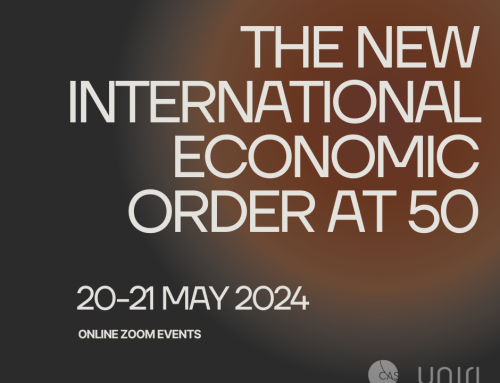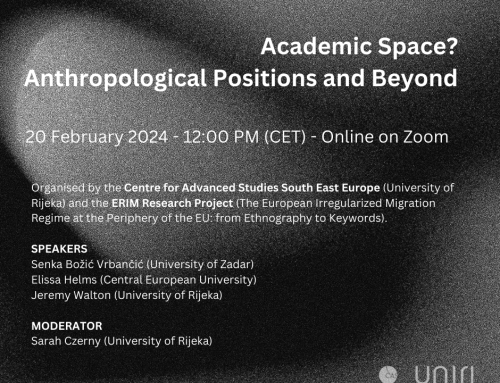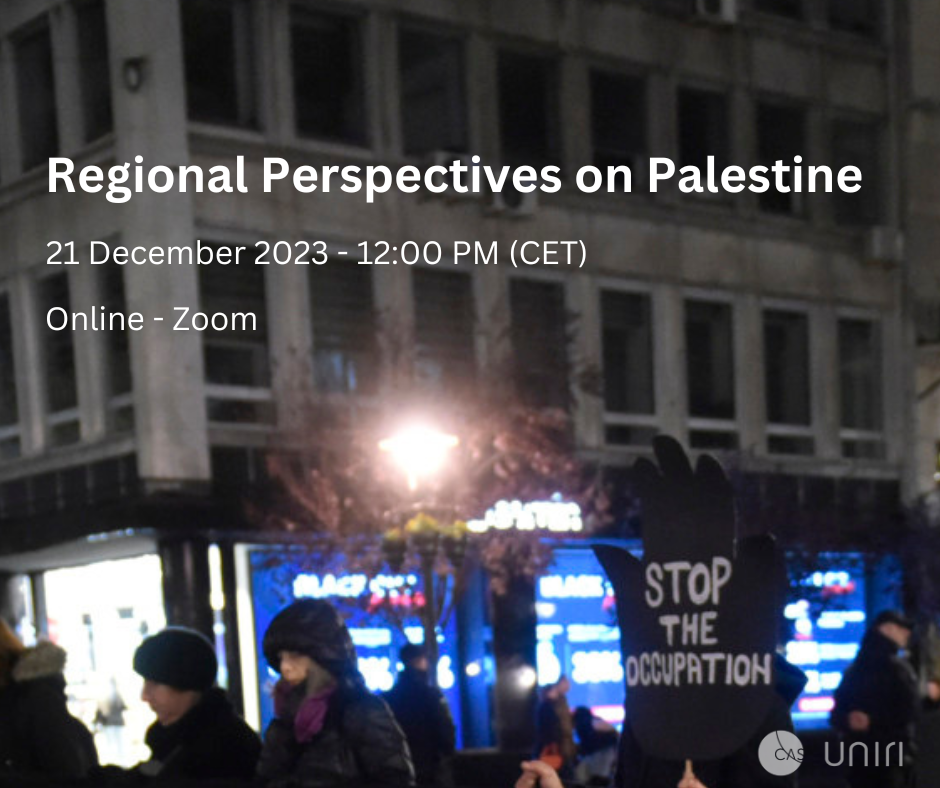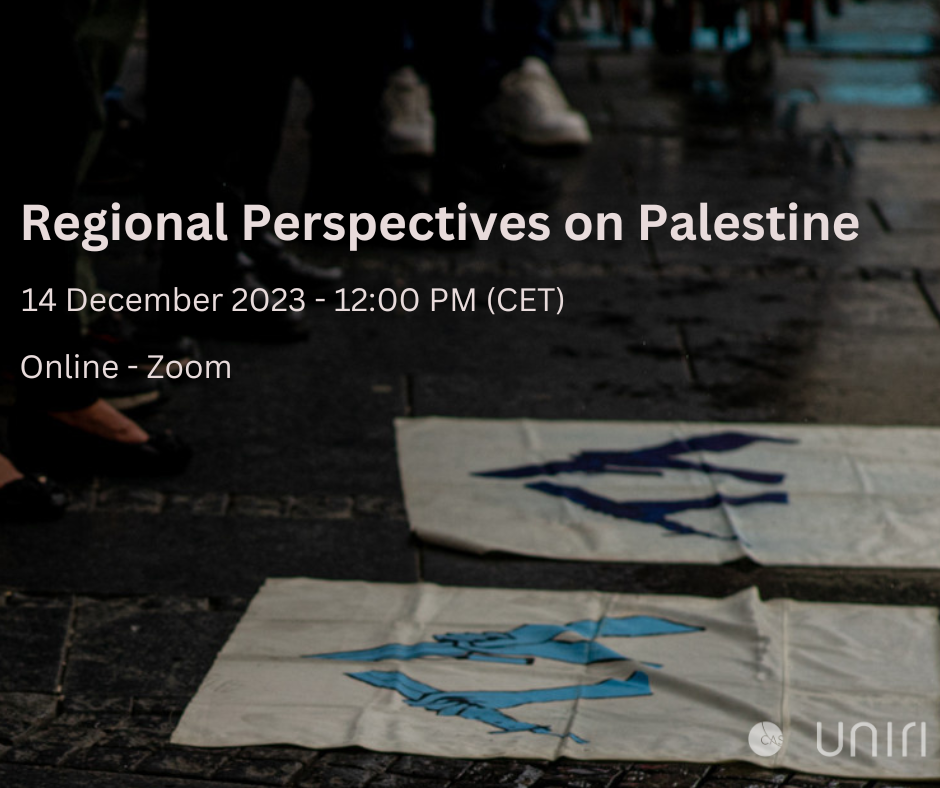Venue: Croatian National Theatre Ivan pl. Zajc in Rijeka
Date and time: June 18th 2018 at 6 p.m.
This year’s Summer School opens with a public lecture by Judith Butler (University of California, Berkeley), entitled “Interpreting Non-Violence.” The lecture will be held on Monday, June 18th 2018, at 6.00 p.m. at the Croatian National Theatre ‘Ivan pl. Zajc’, and will be moderated by Sanja Bojanic (UNIRI CAS SEE; Academy of Applied Arts; Center for Women’s Studies, Faculty of Humanities and Social Sciences).
“Interpreting Non-Violence”
“If non-violence is to make sense as an ethical and political position, it cannot simply repress aggression or do away with its reality; rather, non-violence should emerge as a meaningful concept precisely when destruction is most likely or seems most certain.
We need to think first about an ethics of non-violence that presupposes forms of dependency, and interdependency that are unmanageable or become the source of conflict and aggression. Second, it proposes that we consider how our understanding of equality relates to the ethics and politics of non-violence. For that connection to make sense, we would have to admit into our idea of political equality the equal grievability of lives. Only a disorientation from a presumptive individualism will let us understand the possibility of an aggressive non-violence, one that emerges in the midst of conflict, one that takes hold in the force field of violence itself.”
 Judith Butler is Maxine Elliot Professor in the Department of Comparative Literature and the Program in Critical Theory at the University of California, Berkeley. She served as Founding Director of the Program in Critical Theory. A prolific author, she is perhaps best known for “Subjects of Desire: Hegelian Reflections in Twentieth-Century France” (1987); “Gender Trouble: Feminism and the Subversion of Identity” (1990); “Bodies That Matter: On the Discursive Limits of ‘Sex’” (1993); “Frames of War: When Is Life Grievable?” (2009); and “Is Critique Secular?” (co-written with Talal Asad, Wendy Brown, and Saba Mahmood, 2009). Her most recent books include: “Notes Toward a Performative Theory of Assembly” (2015); “Vulnerability in Resistance,” (2016), edited with Zeynep Gambetti and Leticia Sabsay.
Judith Butler is Maxine Elliot Professor in the Department of Comparative Literature and the Program in Critical Theory at the University of California, Berkeley. She served as Founding Director of the Program in Critical Theory. A prolific author, she is perhaps best known for “Subjects of Desire: Hegelian Reflections in Twentieth-Century France” (1987); “Gender Trouble: Feminism and the Subversion of Identity” (1990); “Bodies That Matter: On the Discursive Limits of ‘Sex’” (1993); “Frames of War: When Is Life Grievable?” (2009); and “Is Critique Secular?” (co-written with Talal Asad, Wendy Brown, and Saba Mahmood, 2009). Her most recent books include: “Notes Toward a Performative Theory of Assembly” (2015); “Vulnerability in Resistance,” (2016), edited with Zeynep Gambetti and Leticia Sabsay.
Butler is the recipient of numerous awards, including the Andrew W. Mellon Award for Distinguished Academic Achievement in the Humanities (2009-13). She is currently the principal investigator in a four-year grant from the Andrew W. Mellon Foundation to develop the International Consortium of Critical Theory Programs. Her visit to Rijeka is part of this endeavor, since the Center for Advanced Studies Southeast Europe and the Center for Women’s Studies (both of the University of Rijeka) and the Institute for Philosophy and Social Theory (University of Belgrade) are Consortium members.
Tickets to the lecture are free, but need to be reserved ahead of time. Please e-mail blagajna@hnk-zajc.hr or call +385 (0)51 337 114 to reserve. Reserved tickets are available for pick-up no later than twenty-four hours before the event. The theater box office hours of operation are Monday through Friday 8 a.m. to 2 p.m., Saturday from 9 a.m. to 1 p.m., as well as two hours before the event.
The lecture will be followed by the play TURBOFOLK-RiLOUDID, a production of Croatian National Theatre Ivan pl. Zajc in Rijeka, beginning at 8 p.m. Tickets for the play can be purchased at the box office of Croatian National Theatre Ivan pl. Zajc in Rijeka or online at Ulaznice.hr, starting on May 28th, 2018.
Panel discussion: “Political Violence: Is Counterstrike Possible?”
Rijeka | June 19th at 5 p.m. | City of Rijeka Town Hall
“Southeastern Europe has seen more than its share of violence. It has also seen loud proclamations of anti-violent ideology from states and governments, from organizations of civil society, down to sundry public voices. The region has seen the adoption and implementation of various EU laws and policies to a far greater and more drastic extent than even in their countries of origin. This trend is partly a symptom of identity crises and identity insecurity, for which policies are designed to curtail all kinds of societal violence, shifting power towards ever-increasing prerogatives of wanton administrations. Instances of violence tend to be interpreted as systemic social degeneration that needs to be uprooted by draconian control and repressive policies. The results are a police force and state institutions with sweeping authority over individuals on the one hand, and widespread apathy and defeatism among ordinary people, on the other. Thus, the study of violence as well as anti-violence policy addresses a core quality of life issue in Southeastern Europe.”
The panel discussion “Political Violence: Is Counterstrike Possible?,” in addition to Judith Butler and the mayor of the city of Rijeka, Vojko Obersnel, will include by Donatella della Porta (Scuola Normale Superiore di Firenze), Astrid Deuber-Mankowsky (Ruhr University Bochum), Peter Fenves (Northwestern University) and Marc Crepon (Ecole Normale Superieure, Paris), and will be moderated by Vedran Dzihic (oiip/UNIRI CAS SEE). The discussion will be held in English.
Round Table with Judith Butler “In Tribute to Saba Mahmood”
Rijeka | June 20th 2018, 5:30 p.m. | Art-kino Croatia
The round table discussion, entitled In Tribute to Saba Mahmood, is dedicated to the recently deceased anthropologist from the University of California, Berkeley who dedicated her scientific research career to studying the relationship of different religious forms and sexual practices, in particular as regards women. At the conversation in Art-kino Croatia, guests from the region will join Judith Butler in evoking Saba Mahmood’s book Religious Difference in a Secular Age. A Minority Report, focusing specifically on aspects directly relevant to the regional context. Participating in the conversation are Rebeka Anic (Institute of Social Sciences Ivo Pilar – Split), Zilka Spahic Siljak (University of Stanford, TPO Foundation Sarajevo), Sanja Potkonjak (University of Zagreb), Adriana Zaharijevic (IFDT, University of Belgrade), Senka Bozic (University of Zadar), and will be moderated by Sanja Bojanic (CAS SEE, APURI). The discussion will be held in Croatian and English. The round table will be followed by the projection of Martha Rosler’s film Semiotics of the Kitchen (USA, 1975).
Follow us on Facebook for more information about the upcoming events.
Organizers: University of Rijeka, Center for Advanced Studies Southeast Europe (UNIRI CAS SEE) and the Institute for Philosophy and Social Theory (University of Belgrade).
Partners: Friedrich Ebert Stiftung Zagreb, HNK Ivan pl. Zajc, Erste Stiftung, European Fund for the Balkans, Institut Francais Croatia, Consulato generale d’Italia – Fiume, Goethe Institute Zagreb, Art-kino Croatia and the City of Rijeka. The Summer School program is part of the “Kitchen” and “Seasons of Power” Flagships of the project “Rijeka 2020 – European Capital of Culture.”





